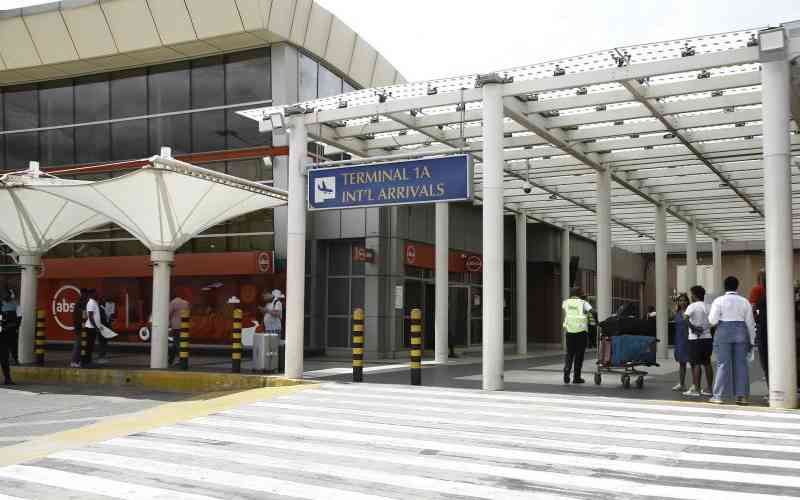
Ride-hailing company Uber businesses contributed Sh14.1 billion in revenue to the economy in 2023.
This is according to its first Kenya Economic Impact Report released in Nairobi on Tuesday.
The American company entered Kenya in January 2015 followed by its closest rival Estonian Taxify (now Bolt) and since that, many more have been establishing a presence including Little Cab, Yego and Farasi.
Commissioned by Uber and conducted by Public First, the report outlines Uber’s economic impact on local businesses, drivers, delivery people and consumers through its mobility and delivery lines of business in 2023.
“This report breaks down the billions of shillings in economic value that Uber helps create annually in Kenya into its constituent parts: giving Kenyans convenient and safe access to transportation, food, grocery and retail items, helping local restaurants find customers during challenging economic times, and giving drivers and delivery people a flexible and independent earning opportunity,” said Imran Manji, Head of East Africa, Uber.
- Pneumonia onslaught: Chest specialist's frontline battle
- Sh154m AI programme promises to cure TB screening headache
- Tech key to combating drug-resistant TB in Africa, experts advise
- A closer look at Tuberculosis, Kenya's leading health threat
Keep Reading
He added: “This report will serve as a benchmark for the coming years, as we continue to find ways to support Kenya’s priorities and be a valuable partner for economic and innovative growth.”
The company later in May 2018 launched its online food delivery platform called Uber Eats.
“Through the Uber Eats platform, we have brought value to restaurants, retailers and merchants by expanding their reach to a wider customer base. In addition, access to insights such as customer preferences, peak ordering times and popular items enables merchants to optimise their offering and tailor their business strategy to meet customer needs,” said Kui Mbugua, General Manager for Uber Eats Kenya.
He added: “This has helped to boost the local economy while supporting enterprise and small businesses by providing them with an efficient and scalable delivery infrastructure.”
Other findings from the report include Uber’s impact on drivers and delivery people, where 57 per cent of drivers and delivery people chose to drive or deliver with Uber and Uber Eats over other earning opportunities because of the ability to be their own boss.
The Uber app provides drivers and delivery partners with a critical opportunity to earn more money and improve their financial situation on flexible and independent terms.
Many adults in Kenya are currently feeling financial pressures, with 48 per cent saying they feel worse off or no better off now compared to a year ago.
According to the report, 87 per cent of drivers and delivery partners stated that they have used earnings made from using the Uber app to cover the cost of their bills.
Sixty-five per cent 65 of drivers and delivery partners reported that the rising costs of goods and services were a key reason why they chose to start using the platform.
On Uber’s impact on local businesses, in 2023, the Uber app supported Sh167 million in additional value for Kenya’s nighttime economy by allowing many Kenyans to reach their local bars, clubs, and restaurants late at night.
The Uber app created an estimated Sh2.7 billion in additional value for the Kenyan tourism industry, supporting millions of tourist journeys.
Under Uber’s impact on consumers, riders reported that among the reasons they used the Uber app, the most common reasons were convenience, safety and speed.
Sixty-seven per cent of Uber Eats users in Kenya listed “convenience” as the most important reason why they opted to use a food delivery app.
Users also highlighted “quick delivery times” (64 per cent) and “good service” (56). Over 36 per cent of Kenyan adults have used the Uber Eats app to order food or essential items in 2023.
Eighty per cent of riders (passengers) had used the app for work-related travel.
Kenyans also use the Uber app to access leisure activities in their area.
In the last year, 64 per cent of riders had used the app to get to a party or festival, 53 per cent used it to get to an airport.
When Public First asked respondents what the most important reasons were for riders using the
Uber app, safety was consistently mentioned, especially among female riders at 96 per cent while 70 per cent of female riders said the Uber app was the safest way to get home.
“The data from the report shows that Uber has a net positive contribution to the Kenyan economy. Our commitment remains to continue to find ways to help Kenyans go anywhere and get anything while creating positive experiences that enable drivers and delivery people to earn sustainably on the platform,” Manji added.
 The Standard Group Plc is a multi-media organization with investments in media platforms spanning newspaper print
operations, television, radio broadcasting, digital and online services. The Standard Group is recognized as a
leading multi-media house in Kenya with a key influence in matters of national and international interest.
The Standard Group Plc is a multi-media organization with investments in media platforms spanning newspaper print
operations, television, radio broadcasting, digital and online services. The Standard Group is recognized as a
leading multi-media house in Kenya with a key influence in matters of national and international interest.











